I'm attempting to truncate a series of double-precision values in C#. The following value fails no matter what rounding method I use. What is wrong with this value that causes both of these methods to fail? Why does even Math.Round fail to correctly truncate the number? What method can be used instead to correctly truncate such values?
The value :
double value = 0.61740451388888251;
Method 1:
return Math.Round(value, digits);
Method 2:
double multiplier = Math.Pow(10, decimals)
return Math.Round(value * multiplier) / multiplier;
Fails even in VS watch window!
